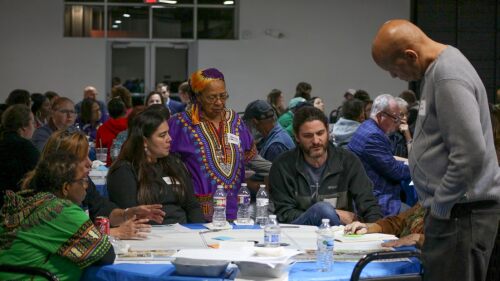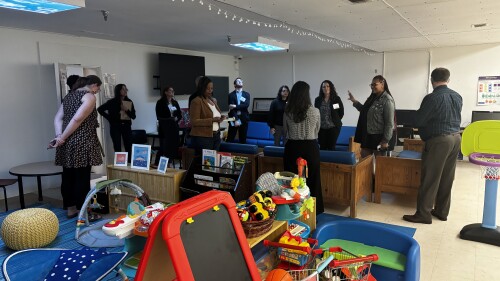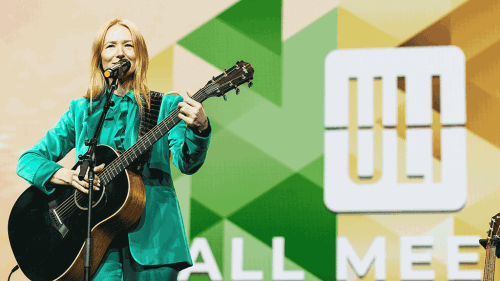Joan Campbell is ULI’s research librarian and brings more than 35 years of research experience to her role. Over her 27-year career at the Institute, she has helped thousands of ULI members with research assistance on real estate, planning, and urban development topics. Campbell is a valued resource not only to members, but also to ULI colleagues who rely on her expertise and savvy when putting together a case study, panel report, publication, or textbook. Based at ULI’s headquarters in Washington, D.C., she receives research requests and inquiries from all over the world. Campbell spoke with ULI Connect about her role, how research has changed, and why human researchers are still relevant in the age of Google. Need assistance with research on a particular topic? Ask her at [email protected].
Joan, thank you for speaking with ULI Connect. Can you tell us a bit about how you got to ULI? And tell us about your educational background.
J.C.: My pleasure. Before I arrived at ULI in 1990, I worked for seven years for the National Restaurant Association in its information resource/research department. I then went to work for Laventhol & Horwath, an accounting and consulting firm that closed in 1990. The firm was a ULI member, and that is how I found out about the library position at ULI. My bachelor’s degree is in education and library science. I also have a master’s degree in management information systems.
While you have served as a resource for ULI members for nearly 30 years, not everyone may know who you are and what you do at ULI. Can you describe what your job entails?
J.C.: My job is to respond to research requests from ULI members who are looking for background research, news articles, case studies, data, or any other reference material on any number of topics. In some cases, people are looking for specific examples or precedents for a type of development they want to pursue. Other times, they may be looking for data on specific sectors in specific markets or a general overview of urban development trends, such as innovation districts or cultural districts. When I begin corresponding with someone about a request, I try to get them to be as specific as possible regarding what information they are after. I may correspond with them several times so I can get a clear direction on the research. I also try to get a sense of what they are using the research for to make sure we are following fair use under the copyright rule.
Describe your research method or process.
J.C.: It really depends on the research request. Typically, a requester will ask for a search of ULI publications on the topic. Our archive of ULI research materials—books, reports, case studies, websites—dates back to ULI’s founding in 1936. Then I will turn to journals, periodicals, and databases that ULI subscribes to. ULI has a reciprocal relationship with many industry associations, so I will tap into our network to access information and data that may be relevant. Like many people, I find Google search to be a valuable research tool, so I will use that as well, and I can often find material through Google that others might miss.
After I have found research materials, I will create a bibliography of resources in a simple Word document. I hyperlink as many articles, reports, etc., as I can in this document and supplement it with PDF versions of the material that I put into a Dropbox that can be shared with the requester, while complying with fair copyright rules. After sending the materials to the person who has requested the information, I will usually follow up with them to ensure I’ve provided them what they were looking for.
Obviously, the internet and search engines have revolutionized the field of library information systems. Can you talk about how your work has changed due to technology?
J.C.: Technology has made it so much easier to correspond with members about their research needs. The web has made so much information accessible at our fingertips, simplifying and streamlining the research process. Technology also enables me to forward requests to members who may have expertise in a particular area, and connect members with one another. For all the benefits and efficiencies of technology, there is no substitute for having a human being on the ground, working a variety of research angles to tap into sources that just can’t be found via simply using Google or another search engine. Sometimes, answers are found the old-fashioned way: by picking up the phone and calling someone in your network. Also, the internet doesn’t do a great job of evaluating the legitimacy of the sources of information. That’s where someone like me—with more than 30 years of experience and deep knowledge of sources of real estate information—can help.
Need assistance with research? Email Joan Campbell with your research requests at [email protected].





